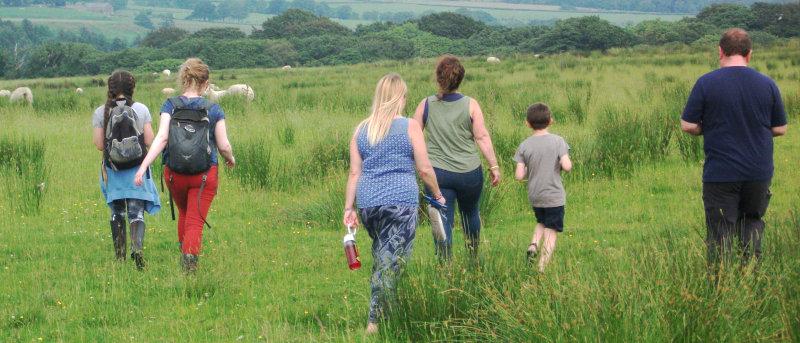
The phrase "Sustainable Development" has been so abused over the years as to render it a distraction in any serious discussion about sustainability. Obviously, we prefer to use the term "Permaculture" when discussing Development and we are striving to protect the original meaning of the word.
National governments and world government organisations (WGO's), together with global corporations, have introduced a number of initiatives under the guise of "saving the planet". From a permaculture viewpoint, we have a duty to examine these critically before adopting them, rather than jumping on any policy bandwagons.
We give our conclusions here:
Our Acronym policy
Policies such as Net Zero (NET0), Sustainable Development Goals (SDG), Environmental and Social Governance (ESG), Diversity Inclusion and Equity (DIE) etc. are designed by the corporate world for the corporate world. We take issue with these policies because they appear to be set up to protect a way of life that is, at its heart, unsustainable. They break a fundamental concept of design: at the very start of the process they neglect the bigger picture and instead they merely tinker round the edges of a dysfunctional system.
Looking through the lens of Kate Raworth's attempt to reform economic thinking with "Doughnut Economics" , policy attempts to protect "The Planet" (in Doughnut economics terms the "Environmental Ceiling") are already damaging the poorer sections of society (the "Social Foundation)" while the wealthier classes can carry on with "business as usual".
We judge policies by their outcomes. Anyone who knows anything about permaculture ethics will understand that we cannot subscribe to policies which allow widespread harm to people and society.
In any event, as an old-fashioned Cottage Industry, we cannot hope to compete with corporates in the fields of box-ticking and virtue-signalling. Rather than engage in these futile games, we choose to engage in our work of creating a better world for the next generation of human beings.
Instead, we take an ethics-based, yet pragmatic approach. We undertake personal responsibility for every action we take at each step of the way towards a saner future. We also refuse to be purists and recognise that people can only do the best that they can when faced with difficult circumstances.
We prefer to be judged by the work that we do and not by the number of forms we can fill in correctly.
Anyone who shares our ethic may join with us in work guided by those ethics and basic principles.
Statement on Veganism
On our courses, we respect the dietary preferences of participants and we accept the variety of practices and views in the group in question. Over the years, we we have had many vegans completing the permaculture design course and we have vegans attending the current ones.
We are aware that vegans hold a variety of views, even to the extent of what is and what is not veganism. With this in mind, we offer some general advice for people who are considering studying with us.
Animals (in the broadest sense) are an essential part of any permaculture system. Vegans practising permaculture, like non-vegans, will manage animals within the system as they see fit. We will discuss aspects of this during the course, although it is not a major topic compared to everything else that we cover.
However, we reject the widely-published argument that then everyone has to go vegan "to save the planet" and we put forward strong arguments to show that this is not the case. These include the potential damage to local ecologies and to local communities. In permaculture, people are free to choose what to eat and how they eat it, as long as they minimise harm to the planet and harm to other people. We encourage people to choose for themselves and to take responsibility for their decisions.
We also give total support to our traditional small farmers and local food producers and consider them, rather than the various Authorities, to be the guardians of the sustainable food production that will secure our future.
We argue these points strongly (but not often) on occasions during the course. If you feel unable to be present during these discussions, then this is not a course for you.
Statement of Faith
The idea of "Sustainable Development" is a product of modern society where many people strive for ever-increasing material gain. Likewise, "Sustainable Development" is based on a rational approach in a world where everything important can be both measured and predicted.
Permaculture does not flourish under these conditions. At the Northern School, we acknowledge that we humans can never know all the mysteries of our universe and this leads us to a state of some humility. With all of our complex societies, we are yet surrounded by the workings of some higher power that nearly all societies in the past have attempted to address.
The need to know the unknowable has led to countless faiths and religions in the past. Our experience shows that a person of faith finds permaculture more comfortable and easier to adopt that those whose faith rests entirely on the workings of modern society. Our courses contain a variety of faiths and prctices and, rather than focus on differences, we all look for our common ground upon which to work.
Our guiding principle is that Permaculture is culture-enhancing rather than culture-changing and we respect any and all belief systems that accord with our ethics.
What is our sustainable development policy?
Our policy is quite simple:
- Produce food as locally and ecologically sensitive as possible
- Require people to take personal responsibility for their actions
- Encourage people to look after each other.
Statement on Development
"Development" does not necessarily mean growth, but rather the effective use of energy and resources to produce better outcomes over time.
Our development framework is the application of Viability, Sustainability and Resilience considerations over the periods and cycles of establishment, growth and maintenance.
Short form definitions
Viability - Stable access to labour, resources and usage of assets.
Sustainability - Viability over the predictable from a period cycle to the next.
Resilience - Viability over the unpredictable within the periodic cycle.
The development period or first cycle begins at the observable confluence of contributory resources that can be collected from connected local environments. Once verified these observations form the basis of a Viability Assessment. Early within the development period we apply a Viability Assessment and declare Value Release Measurements.
Sustainability is the ability to maintain activities without consumption of non renewable assets and resources. It is determined over predictable time periods and fluctuations in conditions within identified boundaries. Boundaries are set as reasonable consumption within limits of renewable resources and maintainable assets.
Resilience is planning and actions for access, utilisation, replenishment and necessary replacement of resources and assets over unpredictable time-frames and circumstances. Resilience is determined by robustness against risk factors. Risk factors are fluctuations in conditions outside of norms for the locality; non local sources of influence, social, environmental and, economic concerns.
Viability Assessment
A stability assessment checking:
- periodic cycles and time constraints
- the start or current position within the economic, production and usage cycle
- outcome indicators, performance indicators, social value & engagement potential
- measurement processes.
Material and capital considerations are planning assessment criteria, viability assessment requires the preconditions for the acquisition of needed resources are met, which are related to the above sufficiency of time and ability to find and connect to necessary resources.
Value Release Measurement
Valuing the utilisation of unrealised / under-utilised assets in social and economic terms plus community enhancement, conversion of waste into useful resources, and maintenance of assets that support the ongoing release of value.
Value Release Measurement of Sustainability
Sustainability is increased by reducing resource waste, increasing work efficiency, capturing and acting on more detailed and accurate information, developing a network to share best practices and ensuring participants can apply skills and knowledge as common practice.
Value Release Measurement of Resilience
Resilience is created by increasing robustness and maintainability of assets, surplus and abundance planning, increasing information speed, detail and accuracy, developing a network that can share, maintain, utilise resources and assets and ensuring participants can apply skills and knowledge in conditions outside of the common practice.
Investment
Investment is the necessary input of a form of capital to realise an asset.
Investment by many forms of contribution is welcome and deserving of various forms or recognition and reward.
